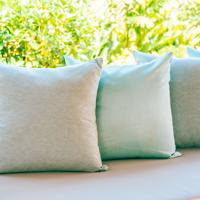Sustainable Sleeping Gear for Eco-Conscious Campers
Sleeping Gear offers a sustainable approach to staying comfortable under the stars.
Camping offers an opportunity to connect with nature, but it’s crucial to tread lightly on the planet while doing so. Choosing sustainable sleeping gear is a significant step toward reducing our environmental impact when outdoors. Here’s a closer look at eco-friendly options and considerations for every camper’s sleeping needs.
Materials Matter
When it comes to sustainable camping gear, the materials used in sleeping bags, mats, and tents play a pivotal role in their environmental footprint. Opting for natural fibers or recycled materials can significantly lessen this impact.
-
Organic Cotton: This natural material is a great choice for sleeping bag liners. It is grown without harmful pesticides and chemicals, offering a soft and breathable option. Its cultivation uses less water compared to conventional cotton.
-
Recycled Polyester: Many bags now are made from recycled plastics. Not only does this reduce waste, but it also limits the reliance on virgin resources. For example, Patagonia offers sleeping bags using recycled polyester, showing their commitment to sustainability.
-
Bamboo Fibers: Bamboo grows rapidly and requires fewer resources, making it a sustainable option for sleep mats or liners. Bamboo fabric is naturally anti-bacterial and moisture-wicking.
Insulation Options
Insulation keeps you warm on those chilly nights under the stars. There are sustainable choices available that maintain comfort without compromising the environment.
-
Recycled Down: Some companies, like The North Face, offer sleeping bags insulated with recycled down. This involves reusing down feathers from older items, reducing demand for new animal products.
-
Synthetic Insulation: Consider options using recycled synthetics, which can offer warmth and are also water-resistant, helpful in damp conditions.
Ethical Production
Ensuring sleeping gear is made ethically is as important as the materials themselves. Look for certifications that indicate fair labor practices and responsible production.
-
Fair Trade Certification: This ensures workers are paid fairly, and production processes adhere to respectable environmental and social standards.
-
bluesign® Approved: Products with this label meet stringent safety and environmental criteria. Brands like Mammut often carry this certification, focusing on minimizing their ecological footprint throughout production.
Durable and Long-Lasting
Durability is a core component of sustainable gear because longer-lasting products reduce the need for replacements, thus minimizing waste.
-
Repairability: Look for gear that offers easy repair options. Some brands provide repair kits for their sleeping bags and mats or offer repair services.
-
Quality Over Quantity: Investing in high-quality gear might be pricier upfront, but it cuts down on long-term costs and waste. Well-made items tend to last longer and perform better over years of use.
Educate Yourself
Make informed decisions by researching gear and understanding their impact. Websites like Leave No Trace provide resources on sustainable outdoor practices, promoting conservation and mindful outdoor enjoyment.
Second-Hand Options
Consider purchasing second-hand sleeping gear or exchanging with fellow campers. Platforms dedicated to selling used outdoor gear can provide affordable, sustainable options without compromising the environment.
Choosing sustainable sleeping gear is about more than just buying a product—it’s about a commitment to preserving our natural world. By considering materials, ethics, durability, and informed choices, campers can enjoy the great outdoors responsibly.

Sustainable Camping Pillows provide comfort with an eco-conscious approach for mindful campers.

Tents & Shelters crafted with sustainability in mind for eco-conscious campers.

Recycled Material Sleeping Pads provide a sustainable and comfortable sleeping solution for eco-conscious campers.

A guide to selecting eco-friendly backpacks and bags for camping.

Organic Cotton Sleeping Bags offer eco-friendly and comfortable sleeping solutions.

Eco-friendly clothing and footwear designed for the camping enthusiast.

Natural Fiber Camping Blankets offer a comfortable and environmentally conscious option for outdoor sleeping.

Sustainable tents offer eco-conscious campers a way to enjoy nature with a low environmental footprint.